Hussam al-Mahmoud | Hani Karazi | Ali Darwish
Syria is free, entirely free—a reality, not just slogans and revolutionary hopes that have remained confined to the squares of protest and the anguish in the hearts of mothers of the detainees and the dead for over 13 years. It has been liberated from the barriers, the barrels, the massacres, and the indiscriminate shelling of the regime, as well as from detention, expulsion, and the conscription of youth as fuel for Assad’s survival. It has been freed from the bargaining over its refugees and its people left in tents pitched in the open air.
Syria has been liberated from the concerns of the Security Council, the Secretary-General of the United Nations, and from the warnings of his envoy about the regime’s attacks on de-escalation areas. It has been liberated from the concept of de-escalation itself, from the fear of walls, malicious reports, and from the dungeons and cells, and from thuggery in the name of patriotism.
The dawn of Sunday, December 8, 2024, was different from all that had come before it for nearly 53 years, during which Hafez al-Assad ruled for 29 of them. His son Bashar ascended to power in 2000 without elections and has continued to rule since then without a real constitutional process that preserves the will of the free human in his country, leading to 2011 when the revolution began. The Syrians have continued a long journey that has cost them dearly—in dead, detainees, and those lost at sea in pursuit of refuge—at a time when the deposed Assad scattered foreign and sectarian militias to fight for the preservation of his crumbling throne and relied on Russian air support, the Iranian Revolutionary Guard Corps (IRGC), and turned the people against each other, the army against its own people, embodying his belief in eternal survival. This belief was transformed by the Syrians into an illusion when voices, long concealed within, erupted in celebration of his departure in the heart of the capital, Damascus, from which he fled without an apology to the people, a thank you to his fighters, or at least an explanation. He fell in silence and left in silence, just as epidemics dissipate after being contained.
In this space, Enab Baladi discusses the most significant event in the history of Syria and the Syrians for decades—the departure of the Assad family and the end of its rule. The focus is on Bashar al-Assad’s final days before his escape and how countries dealt with the event, based on the opinions of locals and political experts.
The deposed Assad in his final days
The recent days and their events did not spare Bashar al-Assad from the rapid advances made by the Military Operations Administration of the Syrian opposition factions participating in the “Deterrence of Aggression” operation, aimed at stopping the regime’s bombardment of northern Syria and returning the displaced from tents to their homes.
So, calls to the President of the UAE, receiving messages of solidarity and support, calling the Prime Minister of Iraq, meeting the Iranian Foreign Minister in Damascus, meeting the Foreign Ministers of Iran, Syria, and Iraq, then meetings of the Foreign Ministers of the Astana process countries (Turkey, Russia, and Iran) in Doha—all of these diplomatic activities occurred simultaneously with the opposition’s advances, regaining vast territories, liberating them, and releasing detainees, before moving on to a new step that brings the revolutionaries closer to their final destination, Damascus.
With the regime losing southern provinces and the factions advancing in Homs and moving toward besieging Damascus, amidst the loud statements from the Ministry of Defense in the regime’s government that contradict the tangible reality for the Syrians, al-Assad reached the final chapter of his rule in the early dawn hours of Sunday when he left the capital for an unknown location. The Military Operations Administration of the Syrian opposition factions later announced al-Assad’s escape, coinciding with their declaration that Damascus was free from his rule, inviting Syrians worldwide to return to free Syria.
The Military Operations Administration stated, “After 50 years of oppression under al-Baath rule, and 13 years of crime, tyranny, and displacement, after a long struggle and confrontation with all forms of occupation forces, we announce today, on December 8, 2024, the end of this dark era and the beginning of a new era for Syria.”
After al-Assad’s escape, Syrian Prime Minister Muhammad Ghazi al-Jalali stated in a video recording from his home that he would be at his office in the Prime Ministry ready to hand over the government headquarters.
For its part, the Military Operations Administration issued a statement directed to all military forces in Damascus indicating that approaching public institutions is strictly prohibited, which will remain under the supervision of the former Prime Minister until an official handover takes place, and shooting in the air is also prohibited.
Internationally.. How did the world receive the fall of al-Assad?
The international stance on the significant change in Syria is exemplified by Washington’s expression of its unwillingness to benefit the regime, and Russia’s announcement that it cannot protect it as long as it does not defend itself.
What happened seems to be a practical implementation of a phase to cut the road between Tehran and Beirut, noting that Israel is trying to secure “Israeli geography,” that began in Gaza, continued in Lebanon, and is ongoing in Syria, according to expert Amer al-Sabaileh from the Stimson Institute.
As for Israel, it announced the deployment of forces in the buffer zone and at several necessary defensive points, which it said was to “ensure the security of the residents of the Golan Heights towns and the citizens of the State of Israel.”
Israel Defense Forces spokesman Avichai Adraee stated that the Israeli army does not intervene in the events occurring in Syria, indicating that this step was taken in light of the developments in Syria and the possibility of armed individuals entering the buffer zone between Syria and the occupied Golan.
In reviewing the rapid developments that have occurred since November 27, leading up to today, retired Saudi General and researcher in strategic and security studies Abdullah bin Ghanem al-Qahtani considered that the United States is the overarching umbrella for everything that has been planned and executed in Syria, through important Turkish-Russian understandings and agreements to change the political and security reality in Syria, as Turkish and Russian eyes turn towards gains during the presidency of Donald Trump, as he mentioned via “X.”
Al-Qahtani also asserted that Trump was the one who brought down al-Assad and convinced Putin to abandon him, ending a long era of Baathist and chaotic rule in Damascus, which will contribute to weakening his former allies in the region.
Trump is the one who brought down al-Assad and convinced Putin to abandon him, ending a long era of Baathist and chaotic rule in Damascus, which will contribute to weakening his former allies in the region.
Abdullah bin Ghanem al-Qahtani, Retired Saudi General and researcher in strategic and security studies
Al-Qahtani continued, “The Syrian Air Intelligence Agency will cease to exist as a concept and mission, and the drugs that have exhausted the Arabs will be contained, with God’s help.”
How did the world receive the departure of al-Assad?
United States:
- White House National Security Council Press Secretary Shawn Savet stated that President Joe Biden and his team are “closely monitoring the extraordinary events” happening in Syria, and they are in constant contact with regional partners.
Russia:
- The Russian Foreign Ministry stated that Moscow did not participate in these negotiations, urging all relevant parties to issue a compelling call to renounce the use of violence and to resolve all governance issues through political means, adding that it is in contact with all opposition factions and urges respect for the views of all forces, supporting the establishment of an inclusive political process based on resolution “2254.”
Germany:
- German Foreign Minister Annalena Baerbock stated that the country should not fall into the hands of “other extremists” in any form, calling on all parties to assume all their responsibilities toward all Syrians, with the need for full protection of minorities.
France:
- France welcomed the fall of Bashar al-Assad’s regime “after more than 13 years of extremely violent repression against his people,” calling on Syrians to reject extremism, according to a statement from the French Foreign Ministry.
China:
- China stated that it is following the developments in the situation in Syria and shows great interest, hoping that Syria can regain stability as soon as possible, according to a statement from its Foreign Ministry.
Turkey:
- Turkish Foreign Minister Hakan Fidan stated that the Syrian people will chart the future of their country, and the international community should support them, while also preserving state institutions and the territorial integrity of Syria.
Qatar:
- Qatar called for ending the Syrian crisis in accordance with international legitimacy and Security Council resolution “2254,” in order to achieve the interests of the Syrian people and to preserve the unity of their country, its sovereignty, and independence.
United Arab Emirates:
- UAE President’s advisor Anwar Gargash blamed the fall of al-Assad on the failure of his policies, stating that he did not use the “lifeline” offered to him by various Arab countries, including the UAE, calling for cooperation from the Syrians to prevent “chaos.”
Israel:
- Israeli Prime Minister Benjamin Netanyahu stated, “This is a historic day for the Middle East. The collapse of the Assad regime and tyranny in Damascus provides a great opportunity, but it is also fraught with significant risks.”
Iran:
- Iran respects Syria’s unity, national sovereignty, and territorial integrity, stating that the fate and future of Syria is solely the responsibility of its people, without destructive interference or external imposition, according to a statement from the Iranian Foreign Ministry.
United States: “Don’t get involved”
Since the beginning of the advance of the opposition factions and their control over vast areas, US statements have emerged, with the most prominent being the US Department of Defense’s denial of its involvement in the “Deterrence of Aggression” operation led by the Military Operations Administration, with the spokesman discussing the significant challenges facing the regime regarding its security and stability.
The spokesperson for the US State Department, Matthew Miller, stated that there is no change in US policy towards the Syrian regime, describing Bashar al-Assad as a “brutal dictator whose hands are stained with the blood of innocent civilians in Syria.”
As the opposition advanced and took control of Hama, Washington merely emphasized the need to ensure the protection of civilians, including minorities, without commenting on the progress of the factions or expressing any objections, considering that the regime’s ongoing refusal to engage in the political process directly led to the escalation of the events witnessed in Syria.
Syrian-American media figure and politician Ayman Abdul Nour believes that the United States did not see any harm to its interests in the actions of the factions, which is why all parties were keen to stay away from anything that could harm US national security, as they know they will be harmed.
In the final hours before the fall of al-Assad’s regime, Trump stated, “Syria is a mess, but is not our friend, & THE UNITED STATES SHOULD HAVE NOTHING TO DO WITH IT. THIS IS NOT OUR FIGHT. LET IT PLAY OUT. DO NOT GET INVOLVED!.”
After the fall of al-Assad’s regime, he said that al-Assad fled his country after losing Russian support, and Russia is no longer interested in protecting him.
Has al-Sharaa changed.. and what about the classification?
Recently, Hayat Tahrir al-Sham (HTS) began to change its discourse, as Ahmed Hussein al-Sharaa, known as “Abu Mohammad al-Jolani,” gave an exclusive interview to CNN published on December 6, where he presented reassuring messages regarding the issue of minorities. He stated, “There have been some violations against them (minorities) by certain individuals during times of chaos, but we addressed these issues (…) No one has the right to erase another group.”
Al-Jolani, who has recently started using his real name, Ahmed al-Sharaa, attributed the changes he has undergone over the years—from the days of al-Qaeda to recent attempts at moderation—to factors of age and the development of awareness with advancing years. He also spoke about the possibility of disbanding Tahrir al-Sham itself and that it is a detail in the Syrian file, whose purpose is to overthrow Bashar al-Assad’s regime.
The United States had placed Hayat Tahrir al-Sham on its terrorism list in March 2017, and in 2018, classified al-Jolani as a “global terrorist,” offering a reward of ten million USD for information leading to his capture. However, he has repeatedly rejected these classifications, considering them “unjust.”
Ayman Abdul Nour stated that when Tahrir al-Sham was classified as a terrorist organization, it was based on its ideology and behavior at the time. However, he pointed out that the HTS has recently begun to change that ideology, which is currently evident on the ground through the disciplined behavior of the HTS. He emphasized that if the structure, administration, and practices change clearly on its part, or if it disband, it is likely that the United States would consider lifting its designation as a terrorist organization and engage with it directly. Classifications are based not on the individual but according to ideologies and the actions they undertake.
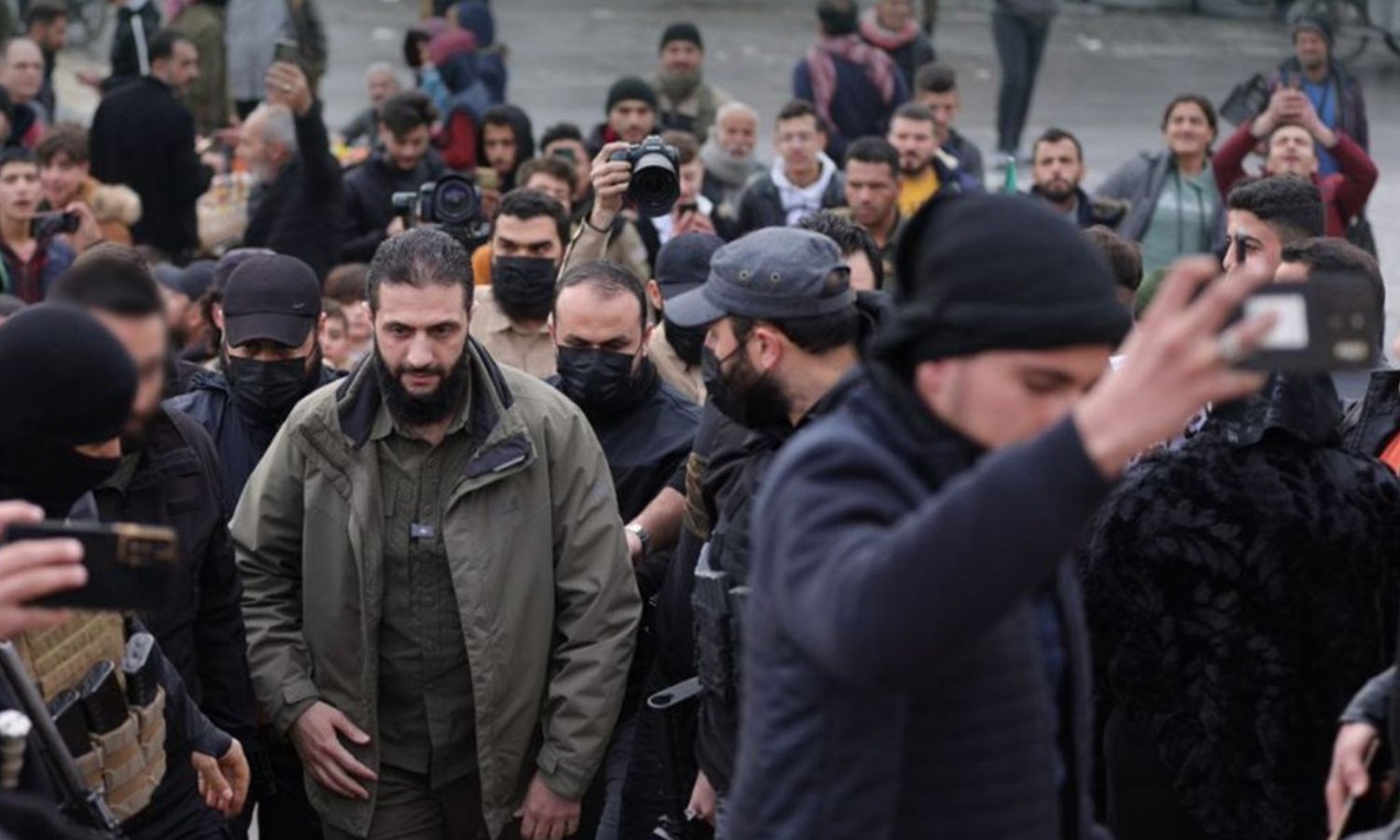
Abu Mohammad al-Jolani, the leader of Hayat Tahrir al-Sham (HTS) in the city of Aleppo after its capture – December 4, 2024 (Military Operations Administration)
Russia abandons al-Assad
Since September 2015, Russia has militarily intervened to save the Syrian regime, after opposition factions reached the outskirts of Damascus. Indeed, Moscow managed over the years to turn the balance of power in favor of the regime through military intervention and political pathways. However, after nearly nine years of Russian intervention, signs began to show Moscow’s abandonment of al-Assad, which became evident following the launch of opposition factions’ “Deterrence of Aggression” battle, which achieved significant advances under Moscow’s watch, which did not strongly support the regime.
The Russian Foreign Ministry sufficed to talk about the necessity of sitting at the negotiation table and de-escalation while accusing Ukraine of supporting opposition factions with drones during the battles they are fighting against the regime in northwestern Syria.
Political analyst specializing in Russian affairs, Mahmoud al-Hamza, explained that Russia has not defended al-Assad for many reasons, including that he does not respond to proposals, especially regarding normalization with Turkey. He had promised the Russians progress towards the normalization track before he escalated against Turkey or brandished the sword of preconditions.
He pointed out that Russia is preoccupied with its war in Ukraine, and Iran has received painful blows from Israel following the assassination of Hezbollah leaders (its closest military ally in Lebanon, which was present in Syria to support the regime). Consequently, al-Assad’s allies no longer have the capacity to support his forces, which cannot protect themselves.
Al-Assad was waiting for Moscow and Iran to defend his survival, due to their interests linked to his presence, but Russia abandoned him, perhaps to avoid sacrificing its interests with Turkey.
Mahmoud al-Hamza, Political analyst specializing in Russian affairs
Al-Assad was expecting Moscow and Iran to defend his survival, due to their interests tied to his presence, but Russia abandoned him, perhaps to avoid sacrificing its interests with Turkey.
In a Russian statement reflecting a shift in stance towards the Syrian regime, Bloomberg reported a Kremlin-affiliated official stating that Russia lacks a plan to save the Syrian regime head and does not foresee the possibility of a plan for his salvation as long as the regime’s army continues to retreat and abandon its positions.
Hours before this statement, the Russian embassy in Damascus had called for Russian citizens living in Syria to leave the country on commercial flights through existing airports due to the difficult military and political situation in Syria.
Russian Foreign Minister Sergei Lavrov spoke after a meeting with the foreign ministers of Turkey and Iran about the necessity of communication between the regime and the Syrian opposition, which he referred to for the first time as “legitimate,” after having previously accused it of terrorism.
In contrast, Russian political analyst Dmitry Bridzhe concluded that Russia has not changed its policies towards Syria, but the continued military collapse of the latter may compel Moscow to rearrange its papers as it realizes that Russian airstrikes cannot change the balance of power without effective ground troops present.
He noted that there are Russian-Turkish understandings and mutual interests, considering Turkey a strategic ally for Moscow, ruling out a shift in Russia’s policy towards Turkey in light of the ongoing war in Ukraine, as that would fundamentally affect Russian interests.
Simultaneously, as opposition factions participating in the “Deterrence of Aggression” operation entered the city of Aleppo, the Syrian Salvation Government (SSG) operating in Idlib sent a message to Russia stating that the Syrian people seek to build positive relationships based on mutual respect and shared interests with all countries, including Russia, which they considered a “potential partner” in building a bright future for Syria.
The Arab stance and reassurance messages from al-Sharaa
This free fall of al-Assad’s regime was met with Arab silence even from countries that normalized relations with him less than two years ago, which opened the door for him to participate in two Arab summits (in Jeddah and Manama) and two Arab Islamic summits (in Riyadh), except for diplomatic statements that fundamentally do not indicate support for his rule.
Strategic expert and non-resident researcher at the Stimson Institute in Washington, Amer al-Sabaileh, stated to Enab Baladi that the Arab positions regarding what happened are not of real value, as what occurred in Syria is a modified version of what happened years ago, in a regional context linked to ongoing regional events. The Arabs, as a collective, are not part of the equation, and their ability to impose specific visions is extremely limited.
Al-Sabaileh considered what happened as part of an international-sponsored regional strategy, meaning that it is no longer acceptable to adhere to what prevailed before October 7, 2023, and the idea of fronts, militias, and weapons reaching inside Israel has come to an end. Syria will not return as an operational ground for organizations and Iran.
The appearance of Ahmed al-Sharaa (al-Jolani) in his name and his talk about his personal life and the idea of dissolving Hayat Tahrir al-Sham suggest a political step that comes with agreements, seemingly as a process of rehabilitation, presenting credentials as a politician rather than a faction leader.
Amer al-Sabaileh, Strategic expert and non-resident researcher at the Stimson Institute in Washington
With its military movements on the ground, the Military Operations Administration, led by Ahmed al-Sharaa (Abu Mohammad al-Jolani), and through the Syrian Salvation Government (SSG) operating under the umbrella of Tahrir al-Sham led by al-Jolani, aimed to provide reassuring statements and messages on two levels, internal and external. It reassured the Shiite, Ismaili, Alawite, and Christian communities, inviting them to stay in their homes and ensuring their safety. It also addressed Russia, urging it to connect its interests with the Syrian people, not with Bashar al-Assad, and called on Jordan and Lebanon to restrain Hezbollah, and Iraq to rein in its sectarian militias, as well as the international community, which it assured would not use chemical weapons and weapons of mass destruction, committing to cooperate on this file.
Al-Sabaileh considered that the emergence of al-Sharaa in his name and his discussion about his personal life and the idea of dissolving Tahrir al-Sham suggest a political step that carries agreements, seemingly as an operation of rehabilitation, presenting credentials as a politician rather than a faction leader.
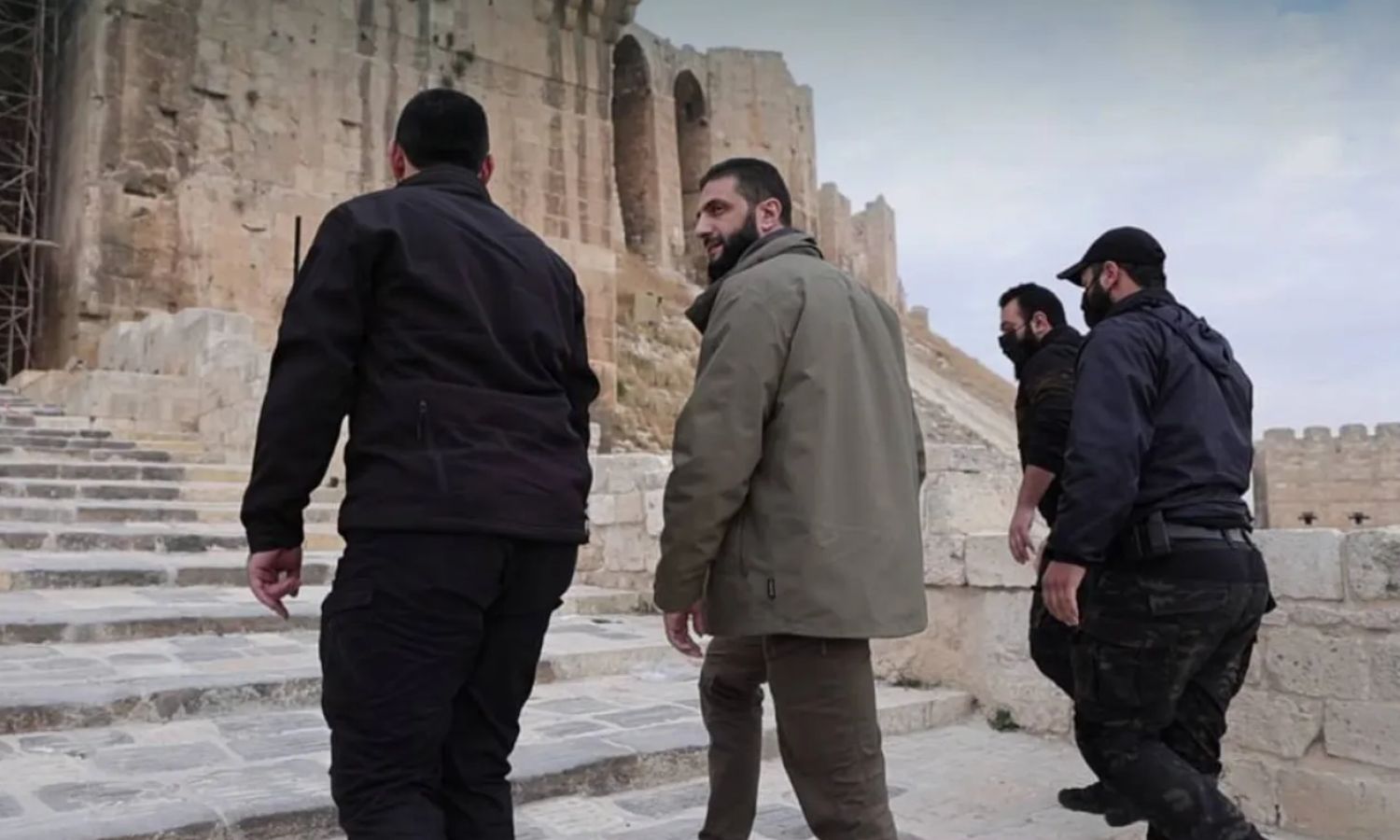
Abu Mohammad al-Jolani, leader of Hayat Tahrir al-Sham in Aleppo after its control – December 4, 2024 (Military Operations Administration)
Baghdad’s fear of Syrian opposition
With the launching of opposition factions’ “Deterrence of Aggression” operation and their advancement at the expense of the regime’s forces and Iranian militias, the Iraqi government issued multiple announcements about closing and securing the borders, even going as far as labeling the factions as “terrorists”.
The tough Iraqi stance against the opposition factions was met with reassurances from the Military Operations Administration that managed the battlefield in northern Syria.
The Iraqi stance toward the military factions, according to officials’ statements, did not change until the last moment of the ousting of al-Assad, with Iraq hinting at supporting the regime against the opposition. Voices emerged from Iraqi militia leaders affiliated with Iran regarding their intention to support the regime, although the Popular Mobilization Forces group, under which these militias operate, denied sending forces to Syria.
Additionally, the leader of the National Shiite Current, Muqtada al-Sadr, reiterated last Thursday that he still stands by his position of non-interference in Syrian affairs, respecting the decisions of the Syrian people, since they alone are responsible for determining their destiny.
Political researcher Nader Khalil told Enab Baladi that the Iraqi government’s negative stance toward the Syrian opposition factions, which clearly manifested after the “Deterrence of Aggression” operation, cannot be interpreted away from Iranian influence and its deep impact on Iraqi foreign policy, “as Iraq’s governments appear as its subordinate”.
The Iraqi stance “seems to be a direct reflection of Iranian dictates more than a justified stance that serves its national interests,” according to Khalil.
The Iraqi stance seems to be a direct reflection of Iranian dictates rather than a justified position that serves its national interests.
Nader Khalil, Political researcher
Iran sees the opposition factions as a threat to its influence in Syria and Iraq, given the close political and security ties of both regimes to Iran, in addition to the sectarian dimensions of the Iranian project. According to Khalil, Iran seeks to exploit the Baghdad government as a tool within the Arab regional system to formulate hostile positions toward the Syrian opposition, serving its strategic interests in Syria and the broader region.
The Iraqi government has security concerns and considers the Syrian opposition a destabilizing factor, based on Iranian descriptions, seeking within its current policy to maintain its regional alliances and strategic relationships with Tehran, even at the expense of its positions on Arab issues, according to Khalil.
Iraqi political analyst Nadheer al-Kandory attributed the Iraqi position to the government’s intense fear of the regime’s downfall at the hands of the Syrian opposition, which could pave the way for a similar fate for the current Iraqi regime in the future.
Based on factors including geography, the two countries share a border of around 605 kilometers, in addition to the demographic factor concerning both countries, as they are both governed by sectarian groups loyal to Iran, oppressing Sunni populations.
The recent political memory of all Arab regimes makes the Baghdad government fearful of a repeat of the Arab Spring scenario, when popular protests spread to several Arab countries.
Researcher Nader Khalil pointed out that there are unwarranted fears within Iraq regarding the possibility of opposition fighters or the influence of their operations spilling over into Iraq, even though the real threat lies with the nearby Islamic State cells, and the Syrian opposition has neither interest, intentions, nor plans for such actions.
The opposition factions have enough concerns and activities within Syria to keep them occupied without any movements outside of it. However, the advance of the opposition could encourage Iraqi forces rejecting Iranian influence to mobilize, threatening the stability of the politically-supported system from Tehran.
Al-Kandory added that, politically speaking, the victory of the opposition over the regime would deal a critical blow to the Iranian project, as Iran and its affiliates sought to present a successful model of control over four Arab countries. Thus, severing the Iranian axis from Syria would strike the Iranian project a fatal blow, putting the fate of the Baghdad government and the parties and militias supporting it, linked to Iran, at risk; for the ruling regime in Iraq, it is a matter of life or death.
Positive discourse
On December 5, the leader of Hayat Tahrir al-Sham, Abu Mohammad al-Jolani, who is the overall commander of the military operations against the regime, sent a message of reassurance to the Iraqi government, affirming that there are no intentions or thoughts among the Syrian opposition factions concerning Iraqi territories.
He stated, “There are a lot of fears and illusions that some Iraqi politicians think regarding the situation in Syria spreading into Iraq, and this is 100% incorrect.”
The Syrian Salvation Government of Syria also issued, at the beginning of December, another message carrying reassurances to Iraq.
Researcher Nader Khalil sees that the “positive” discourse of the Syrian opposition directed at alleviating regional fears placed the Iraqi government in a difficult position, as it tempered its stance before the opposition factions complete their operations of toppling the regime.
The first official communication of the ousted Assad during the factions’ attack was with Iraqi Prime Minister Muhammad Shia’ al-Sudani, who indicated Baghdad’s readiness to offer full support to Syria in what it described as “facing terrorism”.
On November 30, during the fourth day of the “Deterrence of Aggression” operation, Iraqi military leaders intensified their statements regarding border security.
On December 3, al-Sudani informed Turkish President Recep Tayyip Erdoğan via a phone call that Iraq would not remain a bystander to the “serious” repercussions occurring in Syria, emphasizing that Iraq had previously suffered from “terrorism” and the consequences of “extremist organizations” taking over areas in Syria, and “will not allow this to happen again”.
All these statements preceded a ministerial meeting in Baghdad that brought together the foreign ministers of Syria, Iran, and Iraq, which resulted in Iraqi statements that did not go beyond expressing unity and sovereignty of Syria, providing humanitarian assistance, and the need to cease hostilities.
With Assad ousted, an era of complex relations between the Syrian regime and its neighbors and international powers has come to an end, an era that lasted for decades, during which the Syrian regime under the leadership of both Assads leaned toward consolidating its interests at the expense of Syria’s true role as an Arab state. For those interests, alliances and axes were built, the latest being the alliance with Iran and the Lebanese Hezbollah, which seems to have come to an end, possibly for good.
if you think the article contain wrong information or you have additional details Send Correction
النسخة العربية من المقال
-
Follow us :












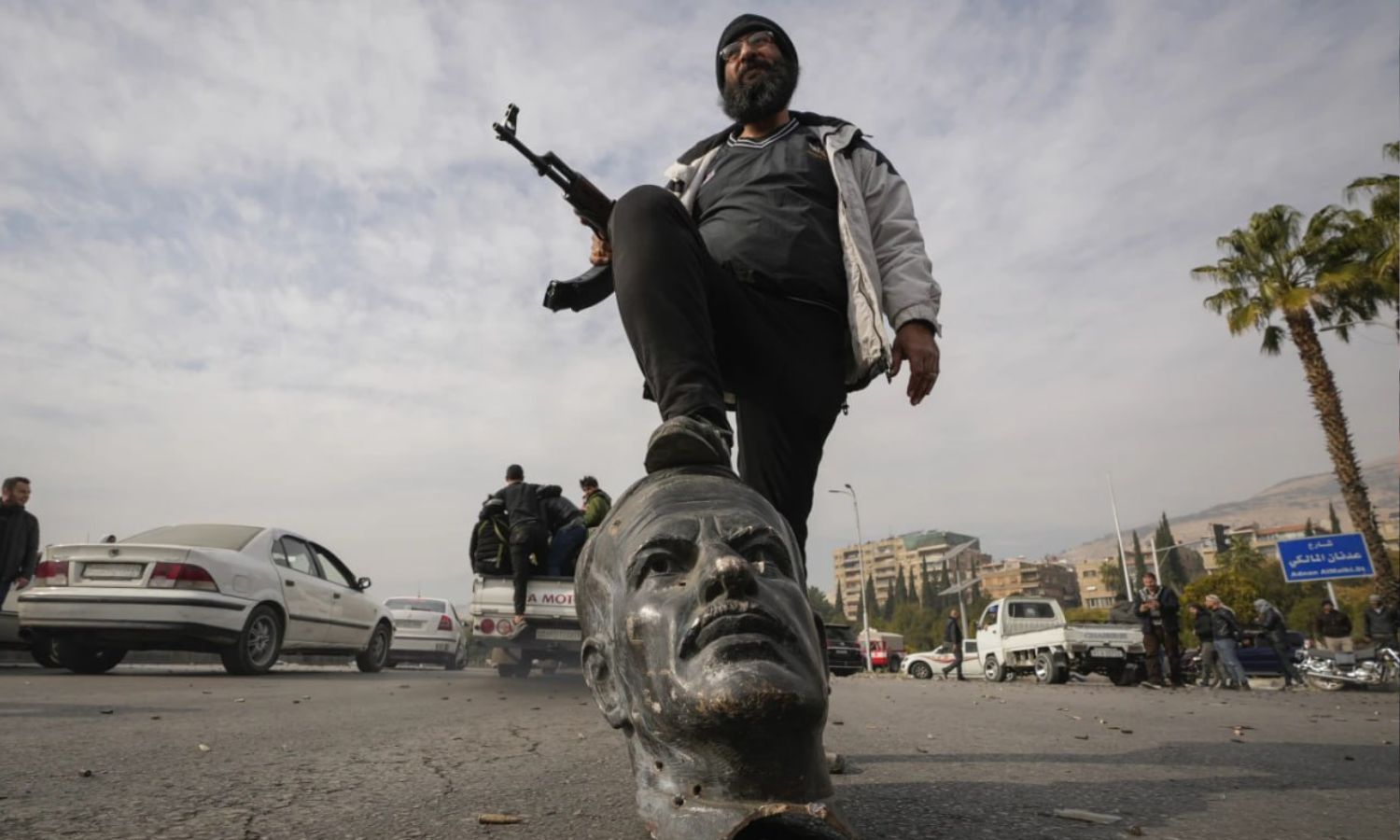
 A fighter from the Syrian opposition factions stands on a statue of Hafez al-Assad in Damascus - December 8, 2024 (AFP)
A fighter from the Syrian opposition factions stands on a statue of Hafez al-Assad in Damascus - December 8, 2024 (AFP)





 A
A
A
A
A
A

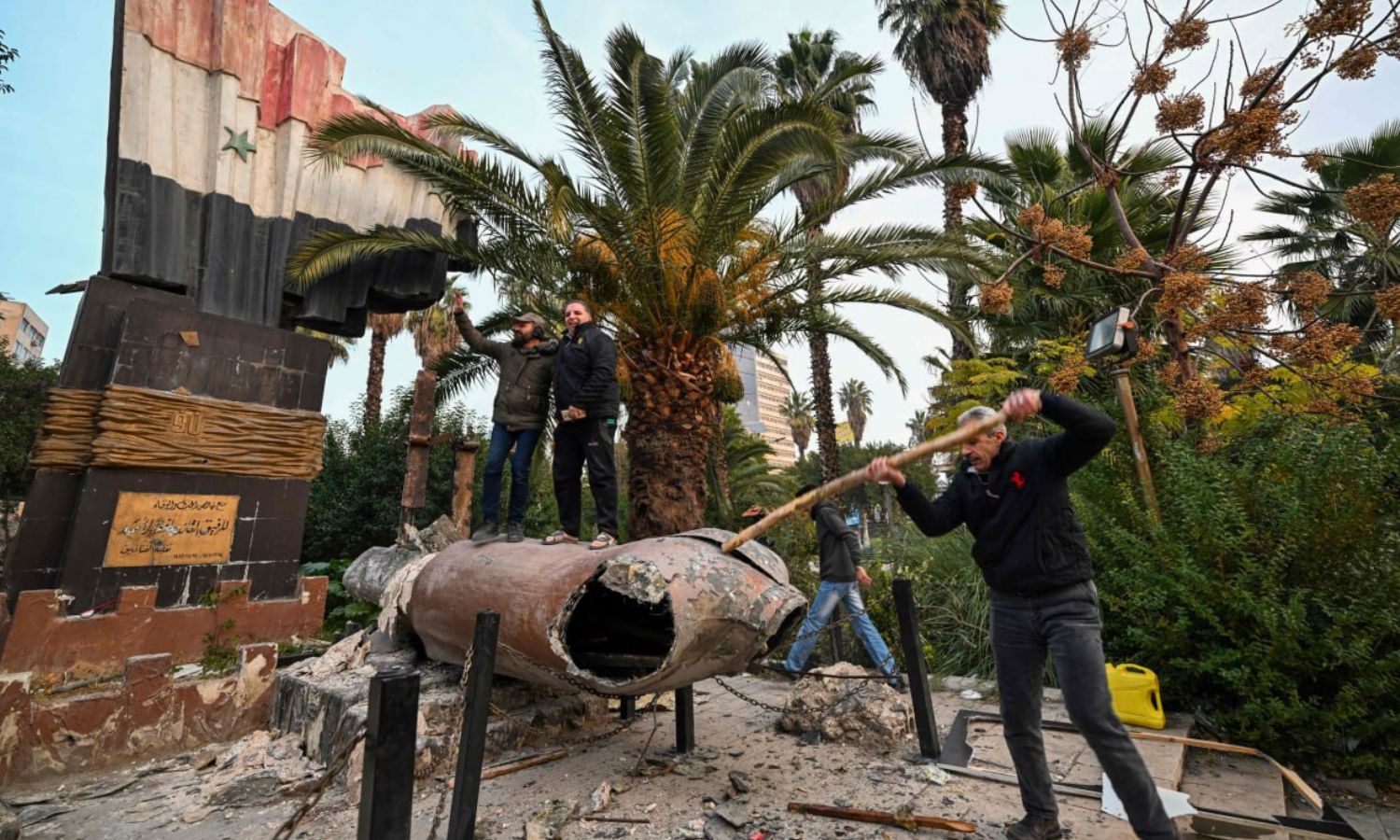


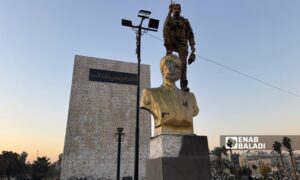

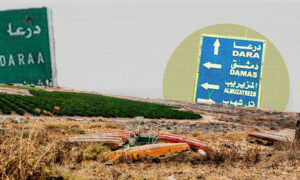
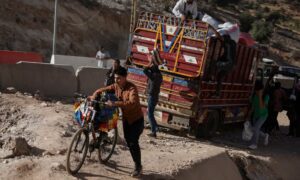

 More In-Depth
More In-Depth